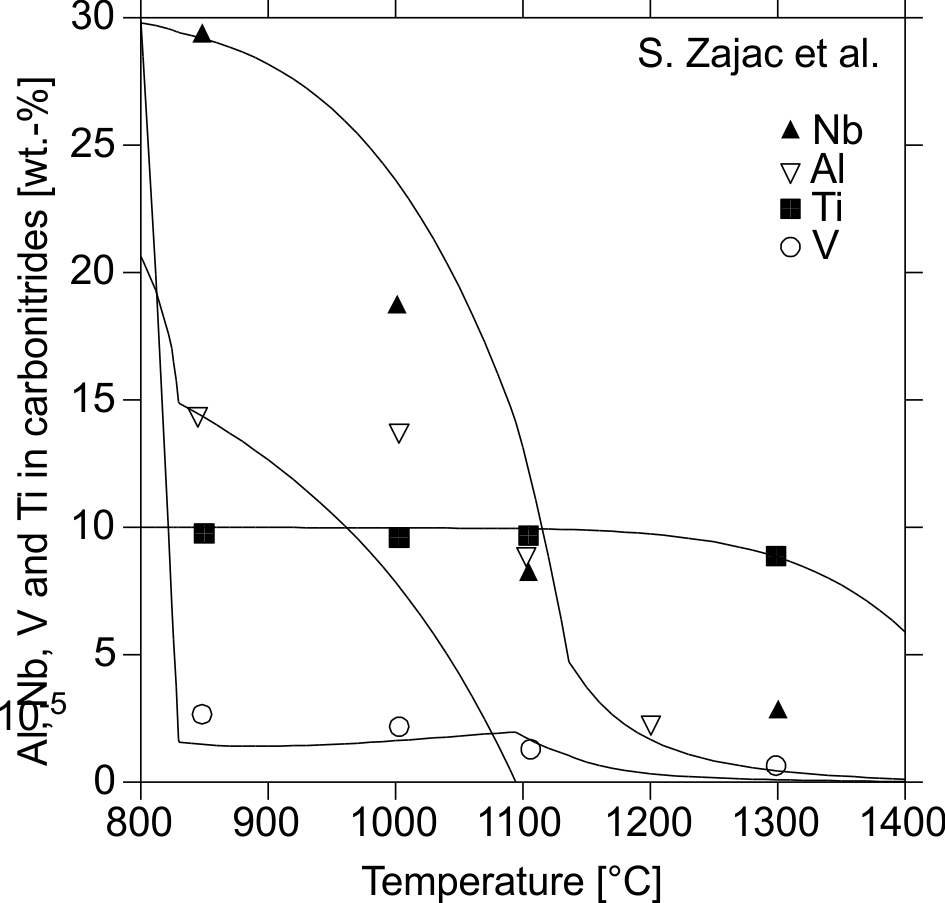High-strength Low-alloy Steels (HSLA)
A useful application of the TCS Steel and Fe-alloys Database (TCFE) is for high-strength low alloy (HSLA) steels, especially to predict correct phases and phase compositions in all possible precipitates.
Figure 1: Predicted mass fraction of Nb, Ti, V, and Al in precipitates compared with experimental information [1998Zaj] for a microalloyed steel with 0.09C-1.51Mn-0.035Al-0.010Ti-0.030Nb-0.08V-0.0105N (wt.%).
The tables below show the predicted compositions for (TixNb1-x)NyC1-y and (NbtTi1-t)CuN1-u carbonitrides (site fractions) in two microalloyed steels compared with measurements from [2000Cra]. All calculations were made at 1000 °C. Both steels contain the following alloy contents: 0.036Al- 1.4Mn-0.50Ni-0.015P-0.002S-0.4Si (wt.%) in addition to the composition provided.
| Steel 1 |
0.07C wt.% |
0.0079N wt.% |
0.025Nb wt.% |
0.009Ti wt.% |
|---|---|---|---|---|
|
x |
y |
t |
u |
|
|
Experiment |
0.86 ± 0.04 |
≈ 1 |
1 |
≈ 0.7 |
|
Calculation |
0.95 |
0.94 |
0.99 |
0.71 |
|
Steel 2 |
0.097%C |
0.0049%N |
0.017%Nb |
0.010%Ti |
|---|---|---|---|---|
|
x |
y |
t |
u |
|
|
Experiment |
0.91 ± 0.03 |
0.84 ± 0.05 |
1 or ≈ 0.8 |
≈ 1 |
|
Calculation |
0.97 |
0.92 |
0.98 |
0.78 |
References
[1998Zaj] S. Zajac, R. Lagneborg, Thermodynamic model for the precipitation of carbonitrides in microalloyed steels - Internal report IM-3566, Swedish Institute for Metals Research, Stockholm, Sweden, 112 pp. (1998).
[2000Cra] A. Craven, K. He, L. A. J. Garvie, and T. N. Baker, Complex heterogeneous precipitation in titanium–niobium microalloyed Al-killed HSLA steels—I. (Ti,Nb)(C,N) particles, Acta Mater., 48 (15), pp. 3857–3868 (2000).
